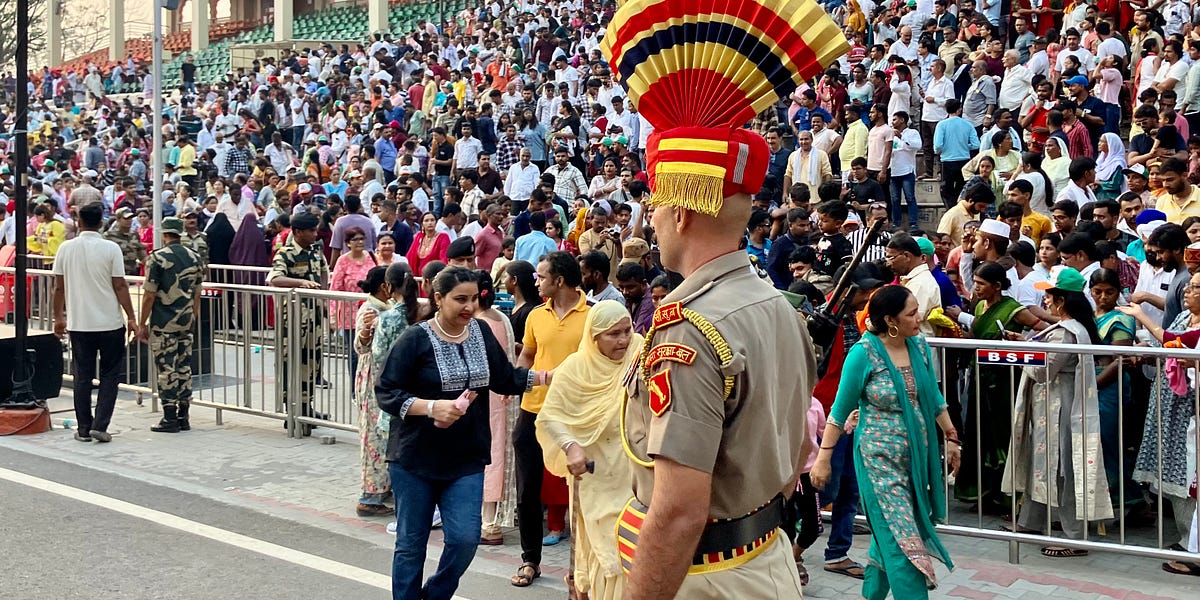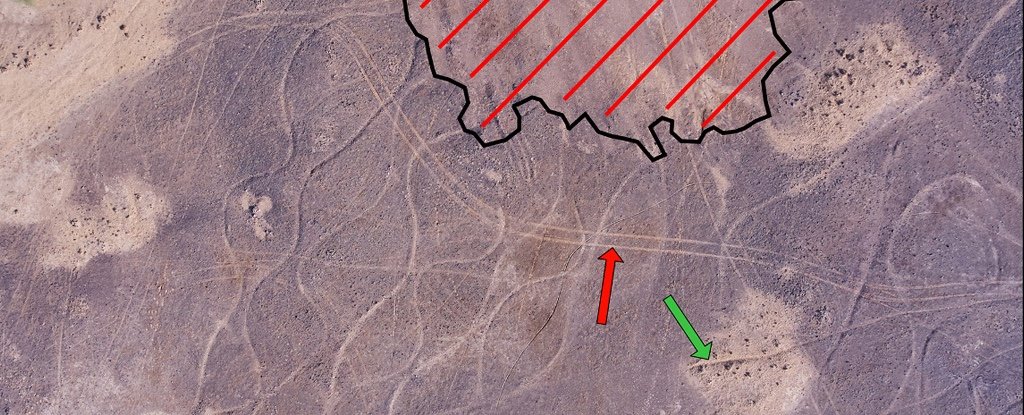
Numb in India, part 3: Numb in Pakistan - by Sam Kriss
Once again, Numb at the Lodge is on holiday. Paid subscribers can join us in a brain-melting tourist odyssey across the past and future of Indias real and imagined. The really good stuff is behind the paywall: this time, it’s about the most anyone ever lost in a game of poker. If you want to come along, all you have to do is click the button below:
Today I’m writing from Wagah, where the Great Trunk Road crosses the India-Pakistan border, and the world’s most dangerous nuclear standoff briefly turns into mass entertainment.
Every evening, just before sunset, thousands of people flock here from Amritsar in India and Lahore in Pakistan to watch the border ceremony. There’s an entire stadium for the occasion. For about half an hour, two sets of border guards in magnificently silly uniforms march and stomp about in front of each other in a kind of Punjabi hakka. I’d expected all the theatrical stomping and marching and high-kicking; what I didn’t know is that it starts with a moaning competition. To rapturous applause, the becrested border guards stand in a line and moan. Oooooaaaaaaah, they say. They keep holding their single note until it sounds like a plane passing very slowly overhead, or an air raid siren. Then their opposite numbers do the same thing. Our country can raise its knees higher than yours. Our country can hold its breath longer than yours. Ooooaaaaaah. After several rounds of this, the gates are briefly opened, and the guards attempt to lower their respective flags at exactly the same time. This is followed by a terse handshake and some more stomping, and then everyone goes home. It’s hugely popular. It happens every single day.
Before you can get to the actual ceremony, though, there are several hours of intensely tacky nationalist pomp. On the Indian side, two huge outdoor screens played constant patriotic montages of the Taj Mahal, the Himalayas, and tigers in the jungle, randomly interspersed with shots of beefy moustachioed soldiers posing in front of multiple-launch rocket systems and armoured personnel carriers. Big thudding portentous drums. Then various members of the public ran around in front of the border waving huge Indian flags. This part was choreographed by an extremely fey man in military fatigues, who rans around after them, extravagantly swooping his arms at various sectors of the audience to make them cheer. Bharat mata ki! he bellowed. Jai! everyone chants. Louder! he bellowed. I can’t hear you! Bharat mata ki! Even more deafening: Jai! The hype man ran a few ecstatic laps of the stadium, grinning with an Indian flag in each hand. He looked exactly like a more militarised Freddie Mercury. I wondered how he got the gig. Did they just select the most exuberant, theatrical soldier from among their ranks? Or did a general of the Border Security Force appear at some student nightclub or children’s birthday party with a suitcase full of cash? You have a very particular skillset; your country needs you, we must not lose the hype war with Pakistan… Anyway, once he’d done a few more call-and-response routines, the stage was cleared and hundreds of women in colourful saris descended from the stands to dance. Blaring, patriotic Bollywood music. There was one called Yeh Desh Hai Veer Jawanon Ka (sample lyrics: ‘This is the country of brave soldiers, this country is the jewel of the world’), but the song that’s been stuck in my head ever since is called Hindustani, and it nicely combines a very catchy tune with some very bitter nationalism. ‘Listen carefully, people of the world, don’t cast the evil eye on us; no matter how hard you try, India will always be ahead of everyone.’ My girlfriend went down to dance and had a great time. There was no men’s dance. The whole exercise was to prove a point: in India, everyone is free to have fun. In Pakistan, women don’t dance. In the West, meanwhile, men and women can dance together, but I didn’t press the point. Through the bars, I could just see the equivalent display on the Pakistani side. A single whirling dervish, dressed all in austere white. When there were gaps in the frantic Hindi pop I could hear their music too, which consisted of unaccompanied Arabic wailing. They knew they couldn’t compete on entertainment value, so they were clearly trying to project a kind of quiet dignity. Some hoardings extended right up to the border, where they seemed to be building more stands. These were decorated with the Pakistani flag and the slogan ‘77 YEARS OF RESILIENCE,’ which is exactly the kind of motto you go with when your national project is going really, really well.




















